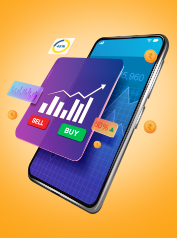Market Insights: Trends, Analysis & Expert Views

250 Views
| 1min read
Posted on 03 Jun

Roshani Ballal
Business Loan Details
Compare Business Loan Interest Rates Business Loan EMI Calculator Business Loan Eligibility Business Loan Documents RequiredBusiness Loans Based on Your Needs
Business Loan for Startups Business Loan for Women Machinery Loan ₹5 Lakh Business Loan ₹50 Lakh Business LoanHome Loan Based on Your Needs
Home Construction Loan Home Renovation Loan ₹50 Lakh Home Loan EMI Home Loan on ₹40,000 Salary Home Loan for Women Home Loan for Bank EmployeesPopular Home Loan Balance Transfer Options
Bajaj Housing Finance Home Loan Balance Transfer PNB Housing Finance Home Loan Balance Transfer LIC Housing Finance Home Loan Balance Transfer ICICI Bank Home Loan Balance Transfer L&T Finance Home Loan Balance Transfer Sammaan Capital Home Loan Balance TransferHome Loan Balance Transfer Overview
Home Loan Balance Transfer EMI Calculator Documents Required for Home Loan Balance TransferLoans for Studying Abroad
Education Loan for UK Education Loan for Australia Education Loan for SingaporePopular Two Wheeler Loans
Bajaj Auto Credit Two Wheeler Loan Muthoot Capital Two Wheeler Loan L&T Finance Two Wheeler LoanUsed Car Loan Overview
Used Car Loan Eligibility Criteria Used Car Loan Interest Rates Used Car Loan EMI Calculator Used Car Loan StatusPopular Used Car Loan
Bajaj Finance Used Car LoanLoan Against Property Based on Your Needs
Commercial Property Loan Mortgage Loan Loan Against Property To Start Business ₹40 Lakh Loan Against PropertyPopular Loan Against Property Balance Transfer Options
Bajaj Housing Finance Loan Against Property Balance Transfer ICICI Bank Loan Against Property Balance Transfer L&T Finance Loan Against Property Balance Transfer LIC Housing Finance Loan Against Property Balance Transfer PNB Housing Finance Loan Against Property Balance Transfer Sammaan Finserve Loan Against Property Balance TransferCard Usage & Benefits
How to Use EMI Card Where EMI Card is Accepted Pay EMI Online Insta EMI Card OffersUnderstanding an EMI Card
What is EMI Card? Features & Benefits EMI Card Charges & Fees EMI Card FAQs EMI Card Vs Credit CardThings You Need to Know
Credit Card Login Credit Card Statement Credit Card Interest Rates Credit Card Payment Credit Card Charges Credit Card Limit Credit Card Reward Points Credit Card OffersEligibility & Application Process
Credit Card Eligibility Documents Required for Credit Card Credit Card Application StatusPopular Credit Cards
Tata Neu HDFC Bank Credit Cards SBI Credit Cards IndusInd Bank Credit Cards ICICI Bank Credit Cards IDFC First Bank Credit Cards Kotak Mahindra Bank Credit Cards AU Small Finance Bank Credit CardsTypes of Credit Cards
Lifetime-free Credit Cards Cashback Credit Cards Rewards Credit Cards Shopping Credit CardsExplore Health Insurance
Individual Health Insurance Top Up Personal Loan Health Insurance Renewal Critical Illness Insurance Preventive Health Check Up Family Health InsurancePopular Health Insurance Plans
Niva Bupa Health Insurance Tata AIG Health Insurance Care Health InsuranceHealth Plans by Coverage Amount
₹1 Lakh Health Insurance Plan ₹3 Lakh Health Insurance Plan ₹5 Lakh Health Insurance Plan ₹50 Lakh Health Insurance PlanMonthly Interest Rate on Fixed Deposit
₹1 Lakh Fixed Deposit ₹3 Lakh Fixed Deposit ₹6 Lakh Fixed Deposit ₹8 Lakh Fixed Deposit ₹10 Lakh Fixed DepositDemat Account Overview
How to open a demat account Documents Required for Demat Account Eligibility criteria for Demat Account Demat InsightsTypes of Demat Account
Basic Service Demat Account Repatriable Demat Account Non Repatriable Demat AccountAccount Holder Types
Corporate Demat Account Joint Demat Account Minor Demat Account NRI Demat AccountStock Market Sectors
All Sectors Banking Sector Finance Sector Infrastructure Sector Health Care SectorStock markets are dynamic environments where prices rise and fall constantly. These price movements, referred to as market fluctuations, are influenced by a range of factors such as economic data, investor sentiment, and geopolitical developments. For new and seasoned investors alike, understanding the causes and effects of these fluctuations is essential for making informed financial decisions.
Market fluctuation refers to the regular ups and downs in the prices of securities listed on a stock exchange. These movements are normal and reflect the interaction of supply and demand, investor expectations, and broader economic signals.
There are typically three types of fluctuations:
Daily Fluctuations: Driven by intraday trading, news updates, or company announcements.
Short-term Volatility: Caused by quarterly earnings, political events, or changes in monetary policy.
Stock prices are influenced by multiple interlinked factors. Here are the primary causes:
Fluctuations often mirror key data points such as:
GDP Growth: Positive GDP growth suggests expansion of economy, typically boosting stock prices.
Inflation Rates: Higher inflation can reduce corporate profits, leading to lower share prices.
Unemployment Rates: Rising unemployment may signal slowing economic activity.
Company-specific developments play a major role in price changes:
Earnings Reports: Better-than-expected results can drive up stock prices.
Management Changes: Leadership transitions may cause uncertainty.
Mergers & Acquisitions: Often result in immediate price surges or dips.
Changes in taxation, interest rates, or foreign investment norms influence investor confidence.
Example: An increase in the repo rate by the Reserve Bank of India (RBI) may result in a market decline.
Geopolitical tensions, pandemics, or global recessions affect Indian markets.
Investor behaviour and psychology can influence prices more than fundamentals:
Herd Mentality: Collective buying or selling driven by group behaviour.
Fear and Greed: Emotional reactions often magnify volatility.
Understanding the impact of fluctuations can help mitigate emotional responses:
Panic Selling: Downward swings may cause irrational selling.
Speculative Buying: Sharp rises can attract high-risk speculators.
Frequent short-term volatility can mask long-term value.
Market dips can offer buying opportunities for well-researched investors.
Major market downturns may reduce public confidence and spending, impacting broader economic health.
While fluctuations are unavoidable, you can manage their effects with proper understanding:
Invest in sectors and businesses you understand well.
Spread investments across sectors, asset classes, and geographies to reduce risk.
Avoid impulsive decisions based on short-term movements.
Stay informed about RBI policy, inflation updates, and global market indicators.
Watchlists
Alerts
The following table summarises common causes and typical outcomes of stock market fluctuations.
Cause |
Example |
Likely Market Reaction |
|---|---|---|
High inflation |
CPI rising above expectations |
Market decline |
Strong corporate earnings |
Company beats profit estimates |
Stock price surge |
Geopolitical tensions |
War or trade barriers |
Market volatility or decline |
Policy rate change by RBI |
Repo rate hike |
Banking stocks may drop |
Global recession forecasts |
Slowing growth in major economies |
Broad market correction |
Instead of viewing volatility as a threat, many seasoned investors regard it as an intrinsic part of market behaviour.
Stock markets tend to move in cycles. Periods of high returns are often followed by corrections.
Trying to predict exact entry/exit points can backfire. Holding quality investments for longer periods often yields better results.
Allows disciplined investors to accumulate stocks at lower prices.
An informed investor is better prepared to withstand market swings:
Reading earnings calls, understanding macroeconomic data, and tracking regulatory announcements can reduce confusion.
Use ratios like P/E (Price to Earnings), P/B (Price to Book), and debt-equity to assess stock fundamentals.
Stock market fluctuations are a regular feature of investing. While short-term volatility can feel overwhelming, understanding the causes and effects helps investors remain calm and focused. With discipline, diversification, and awareness, one can navigate fluctuations with greater clarity and confidence.
This content is for informational purposes only and the same should not be construed as investment advice. Bajaj Finserv Direct Limited shall not be liable or responsible for any investment decision that you may take based on this content.
Daily fluctuations can be triggered by news, trading volume, or announcements like quarterly earnings.
Not if approached with research, diversification, and a long-term view. Panic reactions can be more harmful than volatility itself.
Accurately predicting short-term market movements is nearly impossible. However, recognising trends and understanding fundamentals helps in better decision-making.
Events like oil price changes, interest rate decisions by the US Federal Reserve, or global political events often have a ripple effect on Indian markets.
Regularly but not obsessively. Weekly or monthly reviews are typically sufficient for long-term investors.
.jpeg)
With a Postgraduate degree in Global Financial Markets from the Bombay Stock Exchange Institute, Nupur has over 8 years of experience in the financial markets, specializing in investments, stock market operations, and project management. She has contributed to process improvements, cross-functional initiatives & content development across investment products. She bridges investment strategy with execution, blending content insight, operational efficiency, and collaborative execution to deliver impactful outcomes.
250 Views
| 1min read
Posted on 03 Jun

Roshani Ballal

Unlock the world of credit! From picking the perfect card to savvy loan management, navigate wisely.

Money Management and Financial Planning covers personal finance basics, setting goals, budgeting...

Explore the investment cosmos! From beginner's guides to sharp-witted strategies, explore India's treasure trove of options.

Navigate the tax maze with ease! Uncover Income Tax 101, demystify jargon with Terms for Beginners, and choose between Old or New Regimes.

Discover essential insights on various types of insurance in India.

Welcome to Tech in Finance, where we explore the exciting intersection of technology and finance...


















